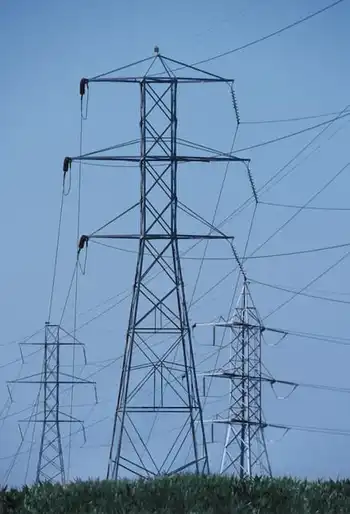US Supreme Court Hears Case With High Import For Power Markets
- The U.S. Supreme Court Wednesday wrestled with how to interpret the 1935 Federal Power Act in the wake of competitive changes that have swept the $220 billion U.S. electricity sector over the past decade.
The justices heard oral arguments in competing challenges to rules the U.S. Federal Energy Regulatory Commission adopted in 1996 requiring utilities to open their transmission lines to competing wholesale power providers.
The case has great ramifications for congressional debate of electric industry restructuring legislation and FERC's ongoing efforts to promote competition as a surrogate for regulation.
"If you pull the rug out from under (FERC's rulemaking), the implications are enormous," said Vicky Bailey, the U.S. Energy Department's assistant secretary for policy and international affairs. Bailey was a FERC commissioner in 1996 when the rules were imposed.
State regulators argued the commission preempted their authority to regulate power sales at retail, while Enron Power Marketing Inc. (ENE), the nation's largest competitive power provider, maintained FERC failed to assert all the jurisdiction it could under the 66-year-old statute.
FERC's open-access mandate, called Order No. 888, paved the way for competitive wholesale power markets. It also set the stage for a 1999 rulemaking carrying that mandate even further to require utilities to turn control of their power lines over to independent management by regional transmission organizations, or RTOs.
But that sweeping effort to reshape the nation's interconnected power grid under control of a handful of RTOs would be hampered if the court agrees with the arguments of state utility regulators that FERC's rules supplanted authority Congress intended the states to have.
If the court agrees with Enron, FERC would have a much freer hand in carrying out its RTO rulemaking.
At issue is the arcane concept of "bundled" versus "unbundled" retail electricity sales. Congress in 1935 never envisioned that half the states today would have moved to open retail electricity service to competition among utilities and alternative providers.
Until the onset of retail power competition, states regulated wholesale power transmission services "bundled" into the retail transaction as an intrastate transaction. FERC regulated interstate transmission services in support of wholesale sales.
But FERC in Order No. 888 determined that once a state opens its power market to retail competition, then wholesale transmission services in support of the retail sales have been "unbundled," and regulation would shift from the states to the federal government.
FERC's policy call usurped state control of retail power sales that Congress intended in 1935, Lawrence G. Malone, general counsel for the New York Public Utility Commission, told the court.
FERC's assertion of authority over wholesale transmission services in support of unbundled retail sales should be struck down in order to preserve the "bright line" between retail and wholesale power sales Congress established in 1935, he said.
"We now have two hands on the retail wheel and it doesn't work," Malone said, accusing FERC of "overreaching" and "rewriting the law."
But Enron argued that FERC should have asserted authority over all wholesale transmission services, whether retail sales are bundled or unbundled. Allowing states to regulate wholesale transmission associated with retail sales violates the interstate commerce clause and disrupts sales in wholesale power markets, said Louis R. Cohen, the attorney representing Enron.
"Utilities hog these (transmission) facilities for their own use and keep us off the road," Cohen said, employing a highway analogy.
Deputy Solicitor General Edwin S. Kneedler argued on behalf of FERC for the court to uphold Order No. 888, which a lower court last year found was a permissible interpretation of FERC's authority under the law.
In its June 2000 ruling, the U.S. Court of Appeals for the District of Columbia Circuit said FERC's open-access transmission mandate represented a reasonable assumption of authority to remedy "a persistent barrier to the development of a competitive wholesale power sale market."
Nevertheless, Kneedler supported Enron's position by stating that FERC has jurisdiction over transmission in bundled retail rates. Any electricity transmitted on the power grid "is necessarily in interstate commerce," Kneedler said.
The justices actively questioned the three attorneys about the language in the Federal Power Act addressing state and federal jurisdiction over electricity sales.
The questioning seemed designed to determine if FERC erred, as Enron argued, in not asserting authority over all transmission services, or if the commission properly exercised discretion in asserting its authority, as the lower court ruled.
But the questioning didn't provide a clear indication as to how the court will ultimately decide the case.
Justice Antonin Scalia, renowned as being a strict constructionist of statutory language, appeared to argue both sides on the case, depending upon whether he was challenging arguments by Malone for New York or Cohen for Enron.
Justice Sandra Day O'Connor's statements appeared to support Enron's position.
"In 1935, we didn't have these interstate grids," O'Connor said. "Today, with a multi-state grid, it's hard to know how any transmission across the grid is anything but interstate commerce," she said.
At another point, O'Connor asked: "What difference does it make if transmission is bundled or unbundled?"
Lynne Church, president of the Electric Power Supply Association, which represents competitive power providers and supported Enron's case before the court, was optimistic that the court will rule that FERC's authority is expansive.
"I think Enron won," Church said.
"I'm cautiously optimistic we'll get a good result," said Cohen, Enron's attorney.
But Charles Gray, executive director of the National Association of Regulatory Utility Commissioners, called the arguments and the probing by the justices "inconclusive."
No matter which way the court rules, Congress will need to pass electricity legislation to address the divide between state and federal jurisdiction, said Gray, who represents state utility regulators.
"I've learned the hard way not to make judgments based on oral arguments," said Elizabeth Moler, who was FERC's chairman in 1996.
Moler, who now heads the Washington office of Exelon Corp. (EXC), called for the court to side with Enron's argument.
"The world has changed since Order No. 888," Moler said, calling the commission's 1996 jurisdictional call a "fair reading" of the law at the time. "If I was there today, I'd go much further," she said.
Related News

Alberta Electricity market needs competition
CALGARY - Last week, Alberta’s new Energy Minister Sonya Savage announced the government would be scrapping plans to shift Alberta’s electricity to a capacity market and would instead be “restoring certainty in the electricity system.”
The proposed transition from energy only to a capacity market is a contentious subject that many Albertans probably don’t know much about. Our electricity market is not a particularly glamorous subject. It’s complicated and confusing and what matters most to ordinary Albertans is how it affects their monthly bills.
What they may not realize is that the cost of their actual electricity used is often…




